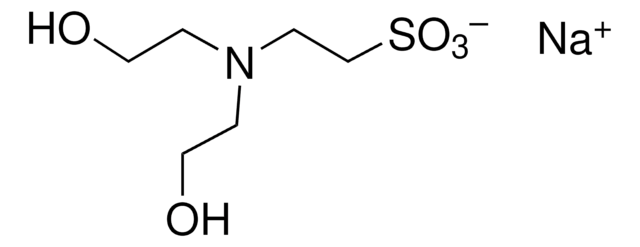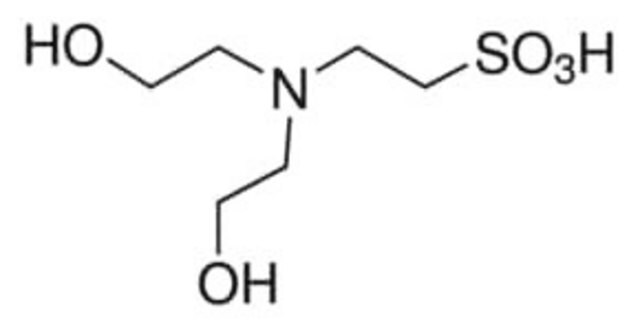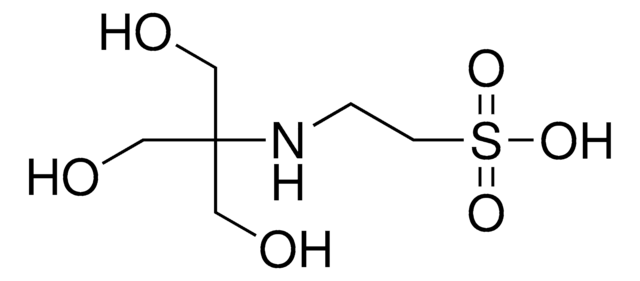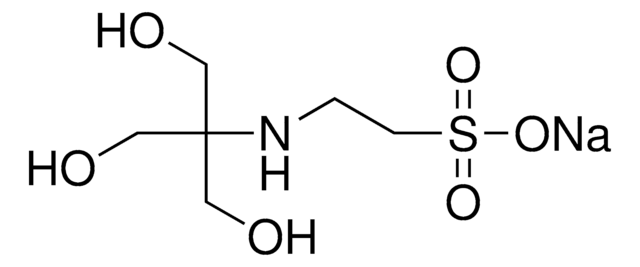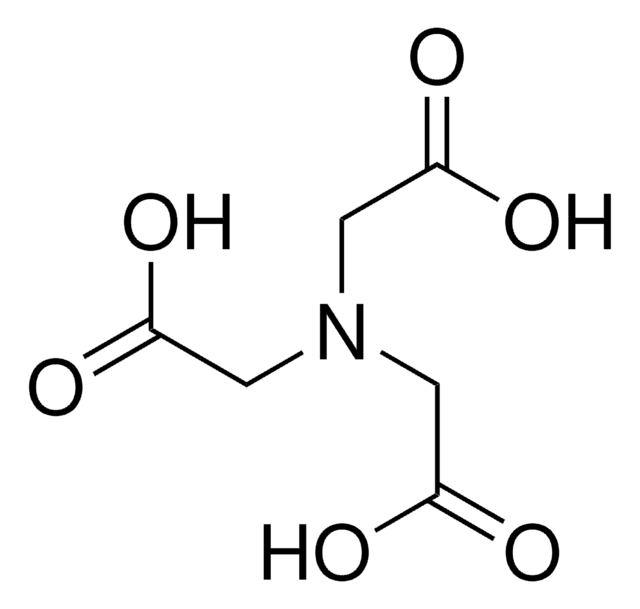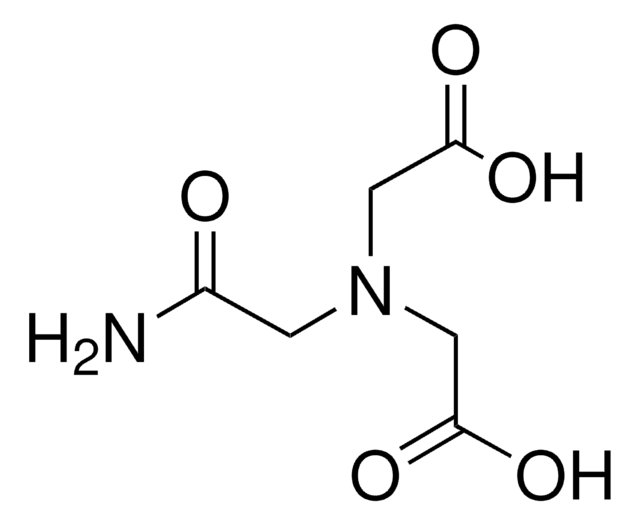B9879
BES
≥99.0% (titration)
Synonym(e):
N,N-Bis-(2-hydroxyethyl)-2-amino-ethansulfonsäure, N,N-Bis-(2-hydroxyethyl)-taurin
About This Item
Empfohlene Produkte
Assay
≥99.0% (titration)
Form
crystalline
Lagerbedingungen
dry at room temperature
Farbe
white
pH-Wert
2.5-5.0 (25 °C, 213.3 g/L)
Nützlicher pH-Bereich
6.4-7.8
pKa (25 °C)
7.1
Löslichkeit
water: 0.5 g/mL, clear, colorless
Dichte
1.30 g/cm3 at 20—25 °C
1.35 g/cm3 at 20—25 °C
Anwendung(en)
clinical research
diagnostic assay manufacturing
general analytical
life science and biopharma
Lagertemp.
room temp
SMILES String
OCCN(CCO)CCS(O)(=O)=O
InChI
1S/C6H15NO5S/c8-4-1-7(2-5-9)3-6-13(10,11)12/h8-9H,1-6H2,(H,10,11,12)
InChIKey
AJTVSSFTXWNIRG-UHFFFAOYSA-N
Suchen Sie nach ähnlichen Produkten? Aufrufen Leitfaden zum Produktvergleich
Verwandte Kategorien
Allgemeine Beschreibung
Anwendung
Leistungsmerkmale und Vorteile
- Suitable for Cell Culture media and as a Buffering solution in Biochemical and Molecular Biology Research
- Effective Buffering from pH 2.5-5.0 (25 °C, 213.3 g/L) with a pKa of 7.1 (25 °C)
- Tested to confirm low levels of heavy metal contamination, ensuring suitability for various applications
Sonstige Hinweise
Vergleichbares Produkt
Lagerklassenschlüssel
11 - Combustible Solids
WGK
WGK 3
Flammpunkt (°F)
Not applicable
Flammpunkt (°C)
Not applicable
Persönliche Schutzausrüstung
dust mask type N95 (US), Eyeshields, Gloves
Analysenzertifikate (COA)
Suchen Sie nach Analysenzertifikate (COA), indem Sie die Lot-/Chargennummer des Produkts eingeben. Lot- und Chargennummern sind auf dem Produktetikett hinter den Wörtern ‘Lot’ oder ‘Batch’ (Lot oder Charge) zu finden.
Besitzen Sie dieses Produkt bereits?
In der Dokumentenbibliothek finden Sie die Dokumentation zu den Produkten, die Sie kürzlich erworben haben.
Kunden haben sich ebenfalls angesehen
Unser Team von Wissenschaftlern verfügt über Erfahrung in allen Forschungsbereichen einschließlich Life Science, Materialwissenschaften, chemischer Synthese, Chromatographie, Analytik und vielen mehr..
Setzen Sie sich mit dem technischen Dienst in Verbindung.